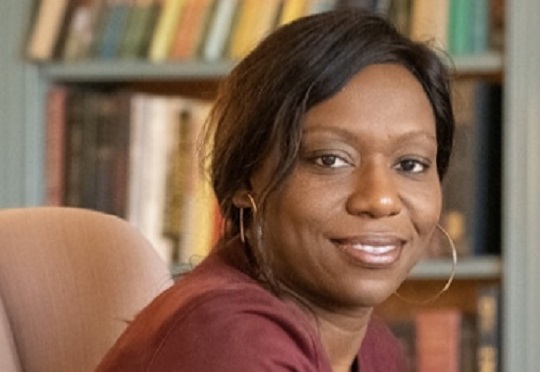AFAWA Hits $1 Billion Investment Milestone in Lending to Women Entrepreneurs in Africa
The Affirmative Finance Action for Women in Africa (AFAWA) (http://bit.ly/3sggisg) initiative of the African Development Bank has reached a landmark $1 billion in approved funding designated for lending to African women entrepreneurs.
This is yet another milestone for the bank following an historic summit last week to tackle the escalating challenges of food security in Africa. The Dakar 2 Africa Food Summit, co-hosted by the Bank and the Government of Senegal, was attended by 34 heads of state and government, more than 70 ministers, farmers’ representatives from the private sector and development partners.

AFAWA was launched in 2015 in Dakar during the first Feed Africa conference (Dakar 1 Africa Food Summit).
Read also Guinean Women Perfect Shea Butter Production for International Markets
Dr. Beth Dunford, the Bank’s Vice President for Agriculture, Human and Social Development said: “I am incredibly proud of AFAWA’s financing achievement. AFAWA’s benchmark reminds us that when we invest to grow Africa’s food systems, we must also invest in Africa’s women agripreneurs.”
Women run the majority of Africa’s agricultural sector small and medium-sized enterprises (SMEs), yet they face significant barriers to accessing finance. Across the continent, African women entrepreneurs face an estimated $42 billion gender financing gap compared to men.
In the last two years, the Bank, through AFAWA, has multiplied the volume of investments toward women-owned small and medium enterprises sevenfold.
“By the end of December 2022, AFAWA-approved lending to women-led small and medium sized enterprises reached $1.051 billion. Of that, $135 million targets women in the agriculture sector,” said Malado Kaba, Director of the Bank’s Gender, Women and Civil Society Department. “AFAWA’s approved lending reaches across 27 countries, and through 56 financial institutions. Already 4,115 women business owners have benefited from AFAWA financing instruments. This is just the beginning,” she added.
Read also Moroccan Fintech Startup Gwala Raises Pre-Seed Funding
Already, financial barriers to African women ‘agripreneurs’ growing their businesses, are being addressed through AFAWA investment. AFAWA is working to boost the professional and financial capacities of over 200 women cooperatives in the staple crop food sector in Cote d’Ivoire. This includes training and access to a digital platform connecting women producers to buyers of agricultural products like wholesalers, retailers and consumers across Cote d’Ivoire.
Furthermore, AFAWA is working with Ecobank on the “Financing Climate Resilient Agricultural Practices in Ghana” project. The project mobilized $20 million from the Green Climate Fund, and $5 million from Ecobank Ghana as co-financing, to fill the gap for working capital to farmers. The AFAWA project aims to provide financing and technical support to 400 women-led, farmer-based associations and women-owned small and medium enterprises, to foster their agriculture productivity and strengthen their climate resilience practices.
To accelerate progress toward unlocking $5 billion in lending for women by 2026, AFAWA has established a Guarantee Mechanism (http://bit.ly/3DtOnuS) which de-risks the women’s market and increases the ability of financial institutions to lend to women business owners.
Read also South Africa’s Yebo Fresh Raises $4.5 million For Its Food Delivery Business
AFAWA also launched the Women Entrepreneurship Enablers program, which provides up to $250,000 for women’s business associations, incubators, accelerators, women-led cooperatives, and civil society organizations. The program increases women SMEs readiness to access credit and scale their businesses. The program inducted its first cohort of 10 Enablers (http://bit.ly/3wFoVi8) in July 2022, who are expected to apply skills acquired in the Enablers program to reach more than 15,000 women-led micro and small enterprises. The second call for proposals to the program drew more than 1,200 applicants. The second cohort will be announced later this year.
“In 2023, we will continue to work closely with our partners to accelerate their ability to lend to women-led micro and small enterprises. Ensuring that the enabling environment is inclusive to enhance women’s ability to access financing will be critical. Thus, we will work closely with policymakers to ensure that the right reforms are in place to accelerate women-led small and medium enterprises’ financial access,” said Kaba.
Kelechi Deca

Kelechi Deca has over two decades of media experience, he has traveled to over 77 countries reporting on multilateral development institutions, international business, trade, travels, culture, and diplomacy. He is also a petrol head with in-depth knowledge of automobiles and the auto industry




